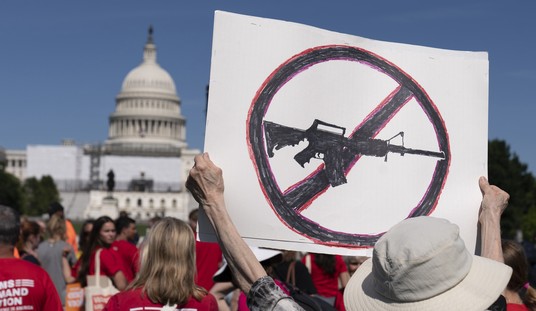Next Tuesday, voters in Maine will decide whether or not to enact a "red flag" law that would allow family members and others to petition the courts and have someone's firearms taken from them for up to a year. Unlike the state's "yellow flag" law, there would be no evaluation conducted by a mental health expert. Instead, it would be up to a judge to decide if someone poses a danger to themselves or others, and in the case of emergency hearings, a petition could be granted based solely on the information provided in the application, with the subject of the petition not even having an opportunity to present any evidence to the contrary.
Maine's Democrat governor has come out in opposition to the referendum, and groups like Gun Owners of Maine and Sportsman's Alliance of Maine have been rallying opposition as well. Supporters of the referendum, though, have raised hundreds of thousands of dollars more than opponents, and the state's newspapers have been filled with columns encouraging voters to say "yes" to Question 2.
One of the latest op-eds comes from Jeffrey W. Swanson, a professor of psychiatry and behavioral sciences at the Duke University School of Medicine and Portland, Maine attorney David B. Joyce. In it, the pair cite a recent study that Swanson was involved with that supposedly demonstrates the effectiveness of "red flag" statutes.
We understand the political tightrope Maine leaders must walk. Misinformation has led some to believe that ERPO laws threaten the rights of law-abiding gun owners. They do not. What they do is prevent gun deaths — without stigmatizing people in crisis or removing property from those who are not dangerous. Our recent multistate study found that ERPOs may prevent one suicide for every 13 to 23 orders issued.
I've heard this statistic before, and as I've previously written, that number doesn't impress me. At best, we're talking about "red flag" petitions preventing a suicide 7.7% of the time. So what happens in the other 92.3% of "red flag" petitions?
I reached out to Swanson via email on Thursday afternoon and asked him specifically about the other 12-to-22 orders; are these individuals who go on to take their lives, did not actually pose a danger to themselves or others, or a mixture of both?
As of the time of publication, I have not heard back from Swanson, but I'll update this post with any response I receive.
This isn't a "gotcha" question. It's of vital importance. Extreme Risk Protection Orders strip someone of a fundamental civil right for months or years at a time. How often are they used to take away someone's ability to possess or purchase a firearm when they actually pose no danger to themselves or others?
But if it saves just one life, isn't it worth it? No, not if there are strategies that can save more lives without infringing on a right. In their op-ed, Swanson and Joyce argue that ERPO laws "complement... existing pathways for mental health intervention," but that's simply not the case. There's no mental health component in the "red flag" referendum; either before or after a petition is granted. No evaluation from a mental health professional before a hearing is held, and no mental health help offered to the subject of a petition if they've been deemed by a judge to pose a danger to themselves or others.
"Red flag" laws don't complement mental health care. They're meant as an end run around the mental health system, which is chronically short of providers and resources in almost every state of the Union. Expanding access to mental health care, particularly in rural parts of the state, would do far more to save lives than the "red flag" referendum on the ballot in Maine this year. Even beyond the due process concerns and infringements on a civil right, Mainers deserve something that offers better odds than a 7.7% chance of preventing a suicide.









